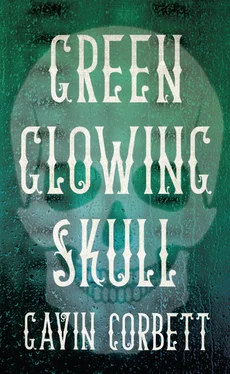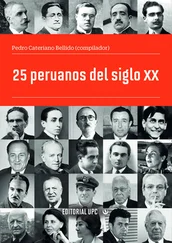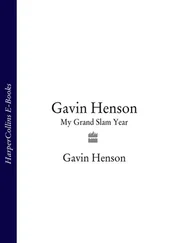Her nightdress was made of linen, gathered at the top, with a kind of primitivist motif embroidered down its front. It was like a cross between an old farmer’s smock and a kimono — Aisling delighted in the Lafcadio Hearn connection as much as he did. She looked very virginal and very pagan in it.
‘I wish you’d come to the concert,’ he said.
‘You need your time with the boys.’
‘But I was at the concert on my own. I wish you’d come.’
‘I couldn’t go to a concert. It’d make me feel down.’
‘How do you think it should make me feel?’
Gently she said, ‘It doesn’t seem to bother you. Why would it bother you? You bought the ticket so it mustn’t bother you. And it shouldn’t bother you. But seeing these people … It bothers me.’
She picked her book back up.
‘It shouldn’t bother you. Deep down you should know that.’
‘Deep down where?’
‘Where your voice is hiding.’
She went ‘tssk’ as if to say he was silly.
‘It doesn’t bother me because I don’t see myself as an operatic tenor any more,’ he said. And then, after a pause: ‘If it’s any consolation, Silveri was abominable. He can’t sing tenor. Would it bother you now if I sang?’
‘It’s not the singing that bothers me, or Silveri. It’s the people that come to these things, all the not-so-grandees. And all the people on the make. They make me feel … Ah, look. Let’s not.’
‘“Not-so-grandees”. I like it,’ he said, and proceeded to sing ‘Niun mi Tema’ from Otello . His body was so at ease, so forgotten, that he thought he had never sung so well. He opened his eyes to the cornicing. The ceiling was the colour of peaches, and throbbed softly, and he felt secure, but remembered his sadness.
‘Did you meet him?’
‘Who?’
‘Paolo Silveri?’
‘Why would he want anything to do with a scut like me?’
‘You still sing opera beautifully.’
He turned to face her, making a pillow with his elbow. She looked down at him from her book, her chin resting on her shoulder. There was virtually no gap between her top lip and her nose, and she looked like a cornflour rabbit.
‘My boy,’ she said.
‘Do you know what is great about you? I can tell you things that I don’t tell myself.’
‘Like that you love me?’
‘Like that I’m a scut. But sure I know I love you.’
‘How do you know?’
‘Don’t I say it?’
‘To who?’
‘To you.’
‘You do.’
‘I’ve proven it.’
‘How?’
‘“How?”’
‘I’m codding.’
‘I know it. I’ll say it now: I love you. You’re my wife. And that’s to me I’m saying it.’
She laughed and went back to her book. ‘What do you think of “Paolo” for a name?’
‘I don’t like it.’
‘I think it would go well with Logan, though. If we ever have a boy I think Paolo Logan would be a fine name, because if he got too big and manly for his boots, he’d always have “lolo” in the middle of his name to make him feel like a girl.’
‘So what sort of nonsense were you talking about with Sheila?’
Well, said Jeremiah Mac An Fincashel to a thirsty buck — as water finds its level so the wanderer finds his too, and usually where there is water. It was all very still. He turned around to the sound of the crunch of stones. The Hudson River heaved by quietly beneath the glide of its surface but nonetheless washed unexpectedly and in unpredictable patterns against the shore. Thorny seed casings and old rope and rusted rail-plates were scattered among the stones, and the stones were sharp as if freshly broken. These surfaces and textures he enjoyed against his thin shoe soles. He followed the wooded valley until the smell of the air changed from rusty to flower-like. He found that he had drops of salt water collected on the fine hairs around his mouth, as if his mouth itself were a flower. He turned left, and walked on narrow country roads alongside wooden fences that buckled inwards and then went towards righting themselves outwards so that what he appeared to be following now were long helixes that stretched away out of sight before a full revolution was made. He forgot to look out for the completion of these revolutions before the wooden fences gave way to recognisably picket fences and the picket fences became chain-link fences.
Having assumed that the commanders of all trucks across the American continent were male, Jeremiah was shaken to discover that the commander of the vehicle that pulled over for him near the Indiana state line was a female.
He would have run away across the field only he had already flung the sports bag containing his belongings into the vehicle’s cabin. It had landed with a sludgy rubbly crunch.
‘It’s funny,’ said the woman on seeing him in the seat beside her. She wore glasses with bright red frames and lenses so large they almost covered her cheeks and in those cheeks he was certain he was identifying the lost bloom of maidenhood. ‘You look tiny on the road, tiny in the movies, but normal-sized in real life. Is that all trick photography or something?’
‘I feel you must be mistaking me for somebody else,’ he said. He grappled about him because he had the sense that if he touched things, these things would disappear. His arm went through the hollow centre of a triangular tubular calendar with a nude woman on it that sat on the dashboard. The inside of the cabin was covered with postcards with nude women on them.
‘You’re British?’ she said.
‘No I’m not,’ he said in his best General American accent.
‘On the run?’ she said.
‘Where are we now?’ he said after a couple of hours.
‘We’re still in what used to be called the Old West and is now commonly known as the Midwest, heading west.’
‘Can I get out now?’ he said.
‘Have we established where you’re going?’
‘Not yet.’
‘So what’s in the bag?’
He croaked like a mechanical crocodile.
‘Do you know what eternity is?’ she said. And then: ‘It’s the condition of being an electronic seabird.’
Later he said:
‘Do you know any of these people?’ He pulled each postcard slightly on the dab of chewing gum that held it. For each one he touched she replied:
‘No.’
The cabin filled with the smell of mint disturbed from the chewing gum.
‘Do you know what elasticity is?’ she said. ‘It’s the condition of living as a seabird electronically.’
Presently she said:
‘Would you like to go to a casino? There’ll be women at it. And private rooms.’
‘Where would I put my bag?’
‘Will you stop worrying about your bag? There’ll be a changing room. You’re right to be making plans for tomorrow, that’s what my ol’ momma used to say. My mother was stupid. Jesus Christ lived only for the moment, and he hated the stupid. You know who said that? Oscar Wilde. And you know what Jesus Christ said? Have faith in me alone, not in laws or morals written down. And the only way to know Christ is in yourself. It’s all there in the Bible.’
‘Would I be invited?’
‘I’m inviting you. Nobody else will see you. It starts off dark and only then the lights slowly come on.’
Some time later, observing black bushes sweeping by across an endless plain in a dim blue light, he said:
‘Maybe between here and there will be the Crack of Doom, and I won’t need to worry about my bag. I intend to throw my bag in the Crack of Doom.’
‘What the hell is in your bag that you need to be throwing into some crack of doom?’
‘Do you know the Crack of Doom?’
‘Never heard of it. Is it like Brig o’ doom?’
Читать дальше
Конец ознакомительного отрывка
Купить книгу












